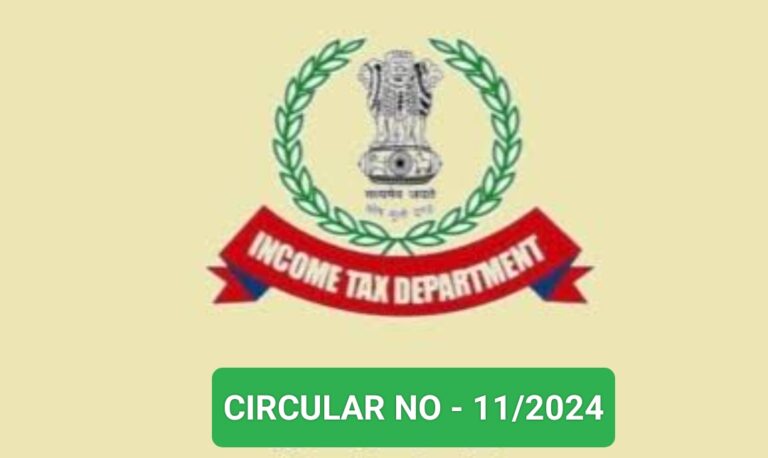No condonation application will be entertained by Income Tax Authorities beyond five years from the end of the relevant assessment year.
Power of Income Tax Authorities in condoning delays in filing returns that claims refunds/ carry forward of losses: In supersession of previous Instructions, Circulars, and Guidelines, the Central Board of Direct Taxes (CBDT) has issued Circular No. 11/2024, which provides comprehensive guidelines for condoning delays in filing returns that claim refunds or the carry forward of losses under Section 119(2)(b) of the Income-tax Act, 1961. This updated circular outlines the following conditions, procedures, and the powers delegated to various tax authorities to handle such claims.
1. Powers Delegated to Tax Authorities:
(i) Principal Commissioners of Income-tax (Pr. CsIT)/Commissioners of Income-tax (CsIT):
These authorities have the power to accept or reject applications/claims for refunds or loss carry forward if the total claim amount is up to Rs. 1 crore for a given assessment year.
(ii) Chief Commissioners of Income-tax (CCsIT):
The CCsIT can handle claims where the refund/loss amount exceeds Rs. 1 crore but does not exceed Rs. 3 crores.
(iii) Principal Chief Commissioners of Income-tax (Pr. CCsIT):
Pr. CCsIT are authorized to accept or reject applications if the claim amount exceeds Rs. 3 crores.
Additionally, the Commissioner of Income-tax at the Central Processing Centre (CPC), Bengaluru, is empowered to accept or reject condonation applications related to delays in verifying the return of income through ITR-V submission to the CPC.
2. Time Limit for Filing Applications:
No condonation application will be entertained by Income Tax Authorities beyond five years from the end of the relevant assessment year. This five-year limit applies to claims filed on or after October 1, 2024, across all the authorities mentioned, based on their monetary limits. The authorities are expected to resolve such applications within six months of receipt.
3. Key Conditions for Condonation:
When considering an application under Section 119(2)(b), authorities must ensure the following:
(i) The delay must have been caused by a reasonable reason, and the taxpayer must prove genuine hardship.
(ii) Authorities may instruct the jurisdictional Assessing Officer to conduct an inquiry to ensure the claim is dealt with in accordance with the law.
4. Refund Claims Arising from Court Orders:
If a refund arises due to a Court order, the period of litigation will be excluded when calculating the five-year limit. However, the condonation application must be filed within six months from the Court order or by the end of the financial year of the order, whichever is later.
5. Belated Applications for Supplementary Refunds:
Belated applications for additional refund claims (after the completion of an assessment) can be considered for condonation, provided all conditions are met. Authorities handling such claims are bound by the following additional conditions:
(i) The income in question must not be assessable in another person’s hands.
(ii) No interest will be paid on the belated refund claim.
(iii) The refund must have resulted from excess TDS, advance tax, or self-assessment tax payments.
6. Applicability to Pending Cases:
The powers outlined in this circular apply to all condonation applications pending as of October 1, 2024.
7. Role of the CBDT:
The CBDT reserves the right to review any grievances related to orders (or lack thereof) passed by the authorities mentioned and issue appropriate directions to ensure proper implementation of the circular.
To Access the Circular No. 11/2024 Click Here
Also Read:10 Key Changes to Rules Starting from 1 October: TDS, STT, PAN & More
Read More
CBDT Notifies Rules and Forms for Direct Tax Vivad Se Vishwas (DTVSV) Scheme, 2024
